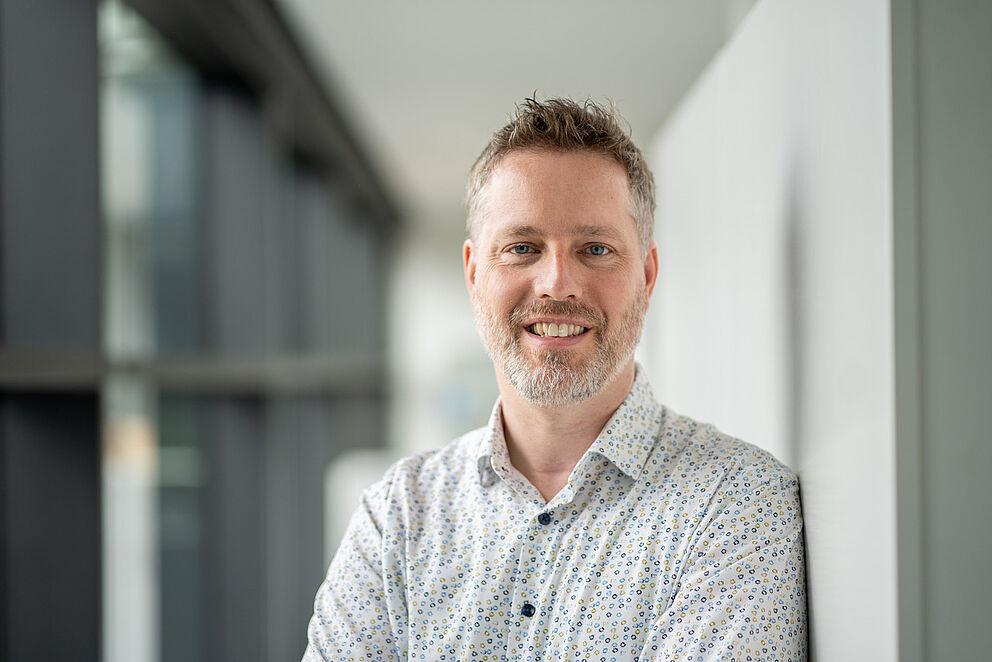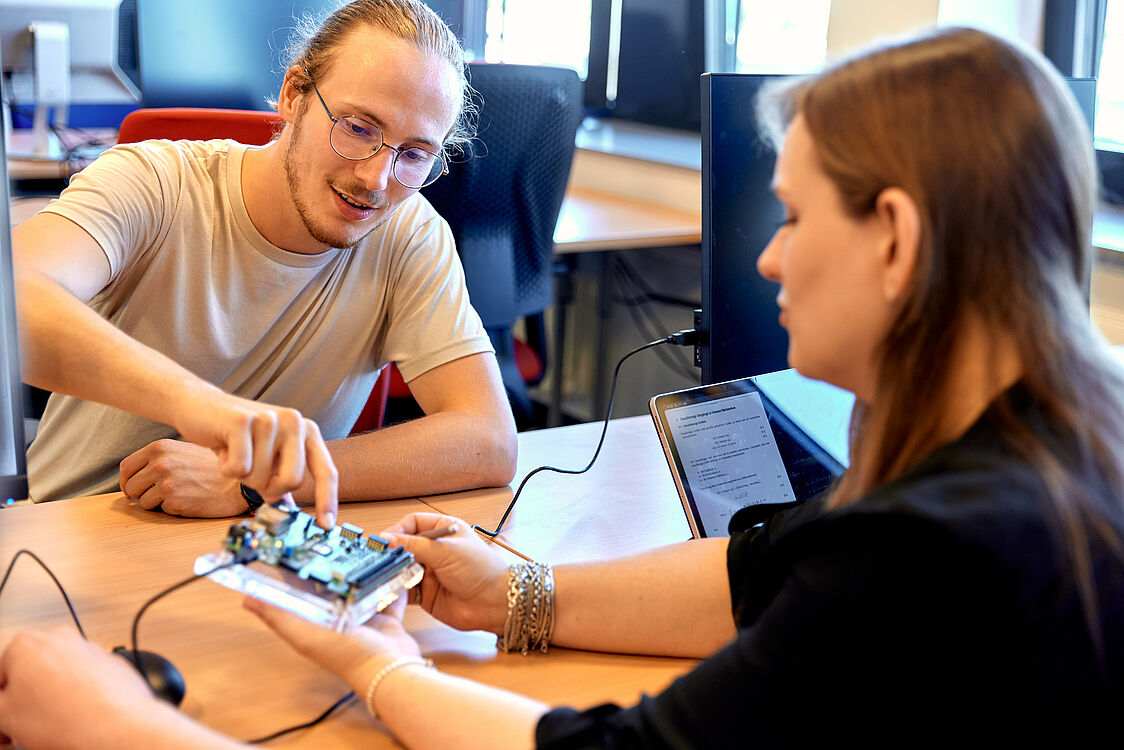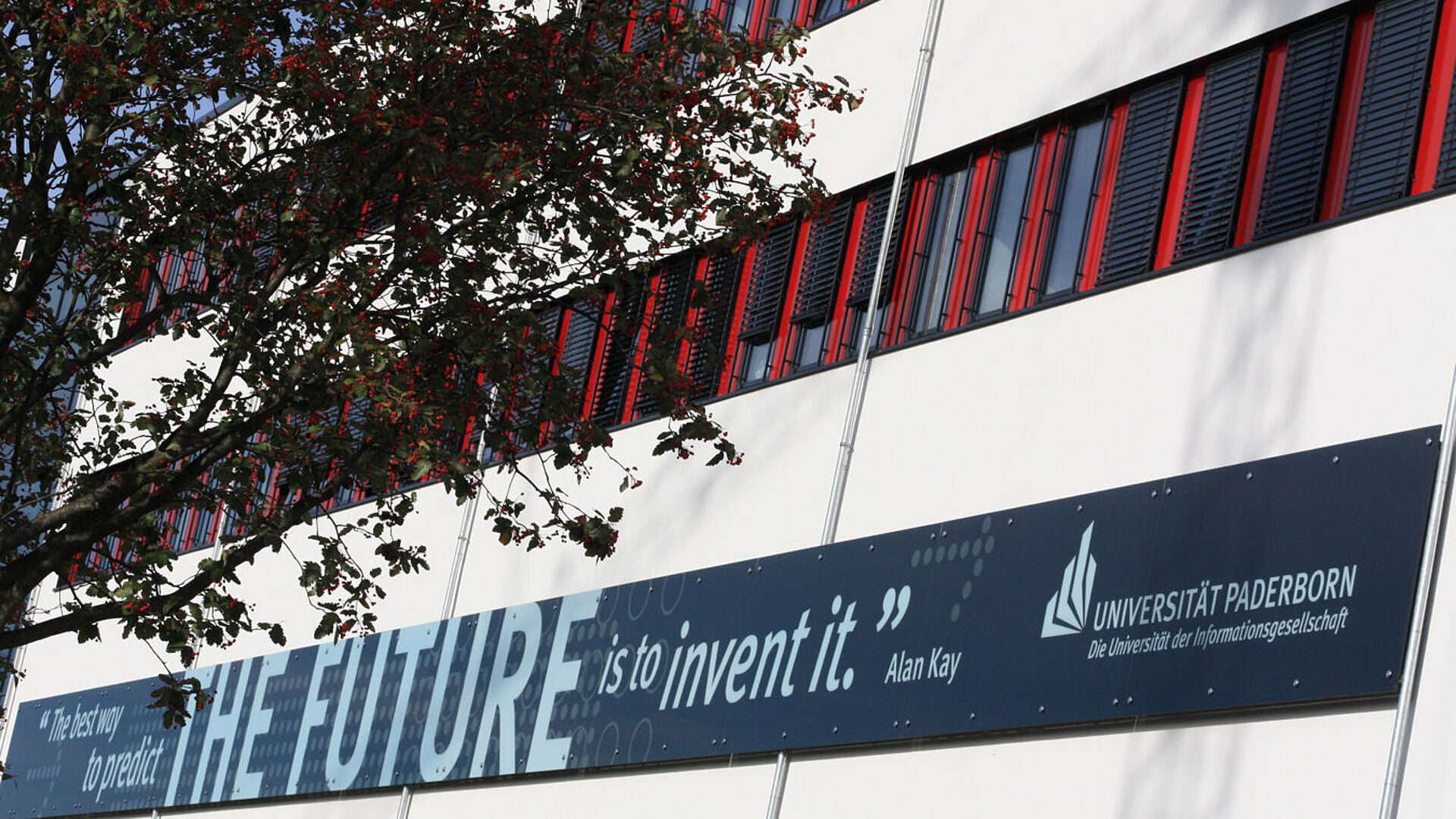Computer science in Paderborn
Since Paderborn University was founded, computer science has been a defining element of the university with its strong links to other faculties and disciplines. With over 1150 students, it makes a lasting contribution to academic education in this important subject for all sectors of the economy. Over 100 scientists conduct research at a top international level, with a strategic focus on data science, IT security, domain-specific computing and software engineering. In internationally recognized rankings such as the CHE Ranking and the Leiden Ranking, Computer Science regularly occupies top positions.
„In both research and teaching, we address topics of high social relevance. We train our students to master the latest methods and technologies, but also to use them responsibly and prudently.”

Vice Dean Institute of Computer Science
Research
Strengths in Computer Science Research at Paderborn University include Data Science, Security, Domain-Specific Computing, and Quantum Computing. We prioritise inter-disciplinary research, and deeply care about transfer into industry - locally, nationally, and internationally.
- Domain-specific computing enables the specialisation of hardware, software and runtime systems to create highly efficient computer systems. Our research in this area includes the development of new methods for modelling and the automatic design of domain-specific computer systems, as well as their application in embedded systems, network components and high-performance computers. Technologically, a long-established focus of our work is on the use of FPGAs, which, due to their broad commercial availability, offer the possibility of testing flexible, reconfigurable, application-specific computer systems in practice.
- Quantum: Our quantum research activities focus primarily on theoretical aspects of quantum computing, including quantum algorithms, quantum complexity theory, quantum cryptography, quantum errorcorrection and quantum information. We are particularly interested in, among other topics, quantum generalizations of Boolean satisfiability, post-quantum cryptography via lattice problems, characterisation of many-body entanglement, and theoretical modeling of photonic quantum systems.
- Data Science: The research area Data Science bundles expertise in machine learning, optimisation and knowledge representation to (i) develop the foundation of novel intelligent solutions and derive (ii) implementations for solutions to practical problems. In addition to their focus on target foundational challenges, the members of the research area target holistic solutions that cover the lifecycle of intelligent solutions from their creation to their archival. Foundational and practical challenges are tackled in research projects of varied nature and size, including collaborative research centres (e.g., the TRR 318), graduate schools (e.g., DataNinja), international training networks (e.g., LEMUR), and AI research groups (e.g., Multicriteria Machine Learning).
- Security: Our security research activities focus on the secure engineering of software-intensive systems, including the engineering and security analyses of web services, applications, and cryptographic protocols. Our holistic approach to security and its engineering leverages human factors methods to support all involved actors, including developers, cryptographers, general practitioners, and end users, in creating and using secure software. Our security research encompasses post-quantum cryptography, web security, secure software engineering, human factors security, and biometrics, and spans broad application areas, such as cyber physical systems, artificial intelligence, IoT, and Industry 4.0.
- Software Engineering: In today's industry, the bulk of value creation is in software. Software permeates our everyday lives. This is why it must be designed to be sustainable, usable, and easy to maintain and secure. We research how to best enable software engineers and related development roles to achieve such qualities for the software intensive systems of tomorrow.
In all these areas we are looking for qualified scientists. Here you can see our vacancies.

Study
Here you can find out exactly what your degree programme entails. From the sample study plan to the exact module descriptions, we offer you a broad overview of your study programme here. In addition to information on studying abroad, you will also find important information on scholarships, mentoring and much more to enrich your degree programme. The formalities are also part of the programme and to make it as easy as possible for you, we have summarised a few things for you here. But don't worry, you'll also find contacts and programmes to help you with advice and support on everything from financial to subject-related questions.

Prospective students
Are you looking for the right degree programme for you? We can help you find out more about our programmes. You can find offers for initial orientation and contacts who can help you. Starting a degree programme is often difficult and presents many challenges. We can help you find the right path here.
Social Media
